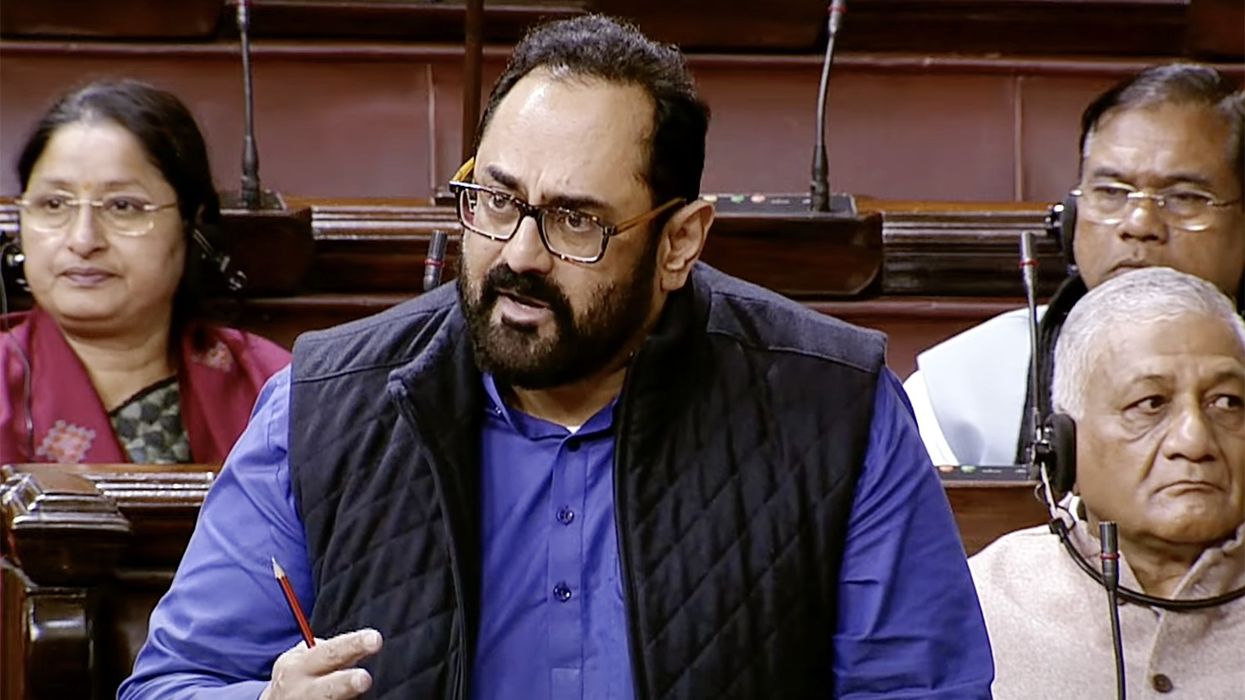POLICE in Kerala opened an investigation against India's deputy minister of Information Technology on Tuesday (31) for allegedly stirring religious hatred on social media after bomb blasts at a Jehovah's Witnesses convention in the southern state.
Homemade bombs exploded, killing three people and wounding 50 in the attack last Sunday (29) that targeted a three-day event organised by the Christian-based religious movement a few miles northeast of the city of Kochi.
More than 2,000 people were attending the convention in the state, where the Jehovah's Witnesses have a strong presence.
Police arrested a man after he posted a video claiming responsibility for the attack, accusing the religious group of being anti-national.
Hours after the blasts, Rajeev Chandrashekhar, a minister in prime minister Narendra Modi's government condemned the attack in a post on social media that went on to accuse Kerala's ruling Communist party of appeasing radical organisations such as the Palestinian Islamist militant group, Hamas.
Chandrashekhar used former US secretary of state Hillary Clinton's 2011 quote "You can't keep snakes in your backyard and expect them only to bite your neighbours. You know, eventually those snakes are going to turn on whoever has them in the backyard" and used hashtags #HamasTerrorists and #KochiTerrorAttacks.
Last week the former head of Hamas, Khaled Mashal, virtually addressed a rally organised by a local Muslim group in Kerala calling for solidarity with Gaza, media reported.
Mashal's address to the rally in Malappuram, around 115 kilometres (71 miles) to the north,
was organised by a youth solidarity group affiliated with Kerala’s branch of the Islamist Jamaat-e-Islami Hind party.
Kerala's chief minister, Pinarayi Vijayan, said Modi's Bharatiya Janata Party (BJP) was trying to destabilise the state of more than 31 million people, 26 per cent of whom are Muslims, according to the census.
Vijayan said Chandrashekhar's allegations that the Kerala government permitted protests against Israel were false.
Chandrashekhar's aide said the criminal case filed by the Kerala police would be addressed by the minister's lawyer.
The incident took place during a Jehovah's Witnesses convention in Kalamassery, about 10 km (6 miles) northeast of Kochi city.
Vijayan told reporters at a briefing that 17 people were in intensive care with five in a critical condition.
Health minister Veena George said a 12-year girl with 95 per cent burns was also in a critical state.
Kochi police commissioner A Akbar told reporters late on Monday (30) that suspect Dominic Martin had been charged with several offences, including under India's anti-terror laws.
Martin had turned himself in to police after releasing a video message on social media in which he claimed to be a disgruntled former member of the church.
"I am taking full responsibility for this. I carried out the bomb explosion. I am making this video to make it clear why I did this," Martin said in a near-six-minute Facebook video which was online for about four hours before it disappeared.
Martin said about he believed the Jehovah's Witnesses' teachings were "antinational" about six years ago and that he had tried to talk to the group about changing their views.
Local media reports said Martin, 48, had learned how to make explosives on the internet.
Broadcaster NDTV said he had spent around Rs 3,000 ($36) to make the bombs.
He returned to India about two months ago from Dubai, the website The News Minute reported.
TA Sreekumar, regional spokesperson for the Jehovah's Witnesses, said Martin was not a registered member of the group.
There are nearly 60,000 Jehovah's Witnesses in India, according to the church's website.
Jehovah's Witnesses are members of a US-based Christian evangelical movement and are perhaps best known for knocking on doors around the world, Bible in hand, trying to convert people to their beliefs.
The movement, which preaches non-violence and is politically neutral, has a history of persecution, with its activities banned or restricted in several countries.
It is a millennial faith, meaning its members believe that the end of the world is near and that God's kingdom will soon rule over the Earth.
(Reuters)





